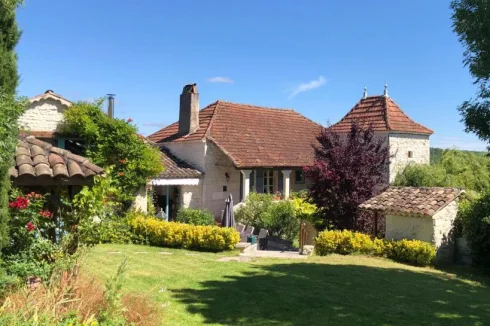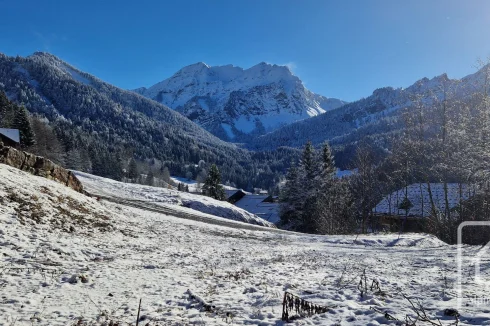Farm Tenancies in France
Friday 02 October 2015
Agricultural tenancies in France grant strong security of tenure to the farmer, but there are less draconian alternatives to allowing your local farmer use of your land.
The main form of farm tenancy in France is the bail rural.
Under the Code Rural a bail rural grants the tenant a statut du fermage, a status which is almost unbreakable.
Whatever else may be stated in the tenancy agreement the provisions of the law state that:
- the duration of the agreement cannot be less than 9 years (18 and 25 years in some cases), with an automatic right of renewal by the tenant;
- the notice to quit by the landlord must be in a very prescribed manner giving at least 18 months' notice.
Termination of the tenancy is only permissible where:
- the tenant has missed two rental payments;
- they have used the property in an inappropriate manner;
- they have refused to carry out certain necessary improvements;
- if the owner wishes themselves, or a direct descendant, to exploit the land for agricultural purposes;
- a change of the zoning of the land following adoption of a new local plan.
In all cases a very precise and laborious procedure is needed to ensure all elements of the process are carried out properly.
So, in practice, if the farmer behaves themselves they have a tenancy for life.
Moreover:
- when they retire they can transfer the tenancy to a member of their family taking on the business;
- in the event of the death of the tenant it is automatically transferred to their inheritors;
- in the event of sale of the land (including any property on it) the farmer has a right of first refusal;
- rent levels are strictly controlled by the Ministry of Agriculture.
A bail rural can be verbal as well as in writing, although there would clearly need to be evidence to demonstrate that a verbal tenancy was in place, eg a witness, payments.
So with the prospect that you might not ever be able to recover your land from the farmer if they are granted a bail rural, what are the alternatives?
'Commodat'
A ‘commodat’, or ‘prêt à usage’, is merely the use of land by a farmer free of charge.
So no rent or other form of recompense is received by the owner, and neither is any kind of charge paid by the farmer.
It is purely and simply use of the land free of charge and free of any sort of title.
The French courts have determined that in such circumstances no statut de fermage arises, and the owner is able to recover the land at the end of the term without any formalities. In exceptional circumstances a court can order early restitution of the land before the expiry of the agreement.
However, great care is still needed in entering into such an agreement, as it is possible for it to be requalified as a fermage by a court of law. It will depend on the circumstances of the agreement, notably whether payment is being made for use of the land or the farmer is paying the local property tax.
To ensure complete clarity it is desirable to establish a commodat by written agreement, and there are numerous standard examples around, although it is best undertaken through a notaire or avocat, for which of course a small charge will be incurred.
Normally the agreements run on an annual basis for the period of the agricultural season and it comes to an automatic conclusion at the end of the season.
'Bail SAFER'
SAFER is the French land agency through whom it is possible to enter into a contract for the temporary letting of land, without the constraints associated with a bail rural. So there is no statut du fermage that is created.
The contract is more formerly called la convention de mise à disposition (CMD), or 'Bail Safer ' for short.
All the formalities are dealt with by SAFER, who themselves take responsibility for finding a suitable sub-tenant and setting up the tenancy agreement.
The duration of the contract is between one and three years non-renewal for larger areas of land or up to six years for smaller areas of land, in which case there exists a right of renewal for a further six years.
The advantages for the owner are that the land is maintained, they receive a small annual letting income and they are assured of recovering the land at the expiry of the contract.
'La Vente d’herbe'
The sale of grass to a farmer is a more difficult area, and frequently such contracts are deemed to constitute a statut de fermage.
Clearly, if the grass is not sold, but merely given away without any recompense paid, then no such risk exists, but in such circumstance it is best to enter into a written contract, such as a commodat.
The presumption of a statut de fermage would exist where the farmer was granted the right to the grass for at least two consecutive years.
So in order to avoid any statut de fermage being created the farmer should not be given exclusive rights to the grass and that the contract was not on a continuous basis for successive periods.
Neither should any form of maintenance obligation be imposed upon the farmer.
Once again, you need to take good advice and any agreement should be in writing.
'Bail Pastoral'
This is a tenancy outside of a statut de fermage, granting a right of grazing for animals belonging to a farmer.
The agreements are formally called les conventions pluriannuelles d’exploitation ou de pâturage.
Traditionally, such agreements have been restricted to mountain and wetland areas for environmental purposes and mainly used in collaboration with the statutory authorities, but they can be used anywhere in the country and between private property owners and farmers.
A regulated rent is payable and the farmer does not have exclusive use of the land, which they may only use for part of the year.
'Les Petites Parcelles'
Small parcels of land, whose surface area is less than a threshold set by the prefecture (often less than a hectare), do not constitute a statut de fermage. So the land can be let out on terms mutually agreed between the parties.
However, the agreement needs careful drafting to avoid the risk that a court could requalify the agreement as a statut de fermage.
'Bail de Chasse'
The parties are completely free to agree between themselves the terms of such a licence, although there are standard agreements available.
If you are considering allowing a farmer use of your land you are strongly advised to proceed with great caution, and only following advice from an experienced and competent legal advisor. The above notes are for general guidance only.
Related Reading:
Next Article: Sterling/Euro Sept Review
Thank you for showing an interest in our News section.
Our News section is no longer being published although our catalogue of articles remains in place.
If you found our News useful, please have a look at France Insider, our subscription based News service with in-depth analysis, or our authoritative Guides to France.
If you require advice and assistance with the purchase of French property and moving to France, then take a look at the France Insider Property Clinic.





